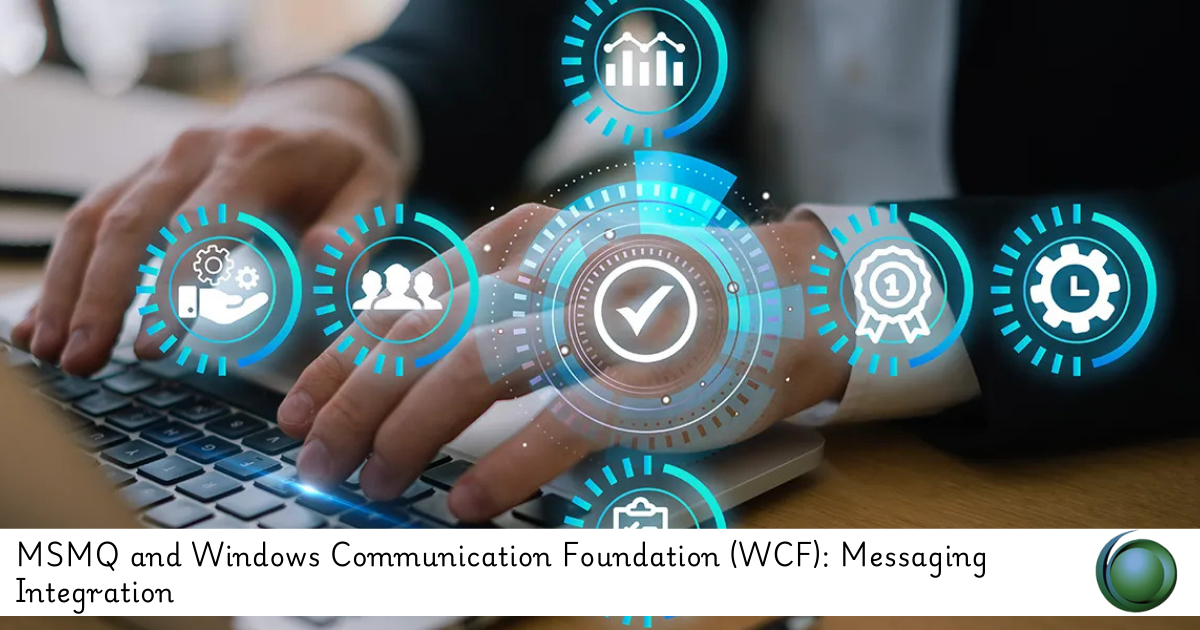Description
Introduction of MSMQ & Windows Communication Foundation
Integrating Microsoft Message Queuing (MSMQ) with Windows Communication Foundation (WCF) provides a robust solution for building scalable, reliable, and asynchronous messaging applications. This course explores how to leverage the features of both technologies to create effective messaging solutions, focusing on configuration, implementation, and best practices. By mastering this integration, you will enhance the performance and reliability of your distributed applications.
Prerequisites
- Basic Understanding of Microsoft Message Queuing (MSMQ)
- Familiarity with Windows Communication Foundation (WCF)
- Basic Knowledge of .NET Framework and C#
Table of Contents
- Introduction to MSMQ and WCF Integration
1.1 Overview of MSMQ and WCF
1.2 Benefits of Integrating MSMQ with WCF
1.3 Key Concepts of Messaging in WCF - Setting Up the Development Environment
2.1 Installing and Configuring MSMQ
2.2 Setting Up WCF on Windows(Ref: MSMQ in Distributed Systems: Ensuring High Availability and Scalability)
2.3 Creating a Sample WCF Project - Configuring WCF for MSMQ Integration
3.1 Configuring the Service to Use MSMQ Binding
3.2 Setting Up Queues for WCF Services
3.3 Defining Message Contracts for MSMQ - Sending Messages with WCF and MSMQ
4.1 Creating and Sending Messages from WCF Services
4.2 Implementing Asynchronous Messaging Patterns
4.3 Handling Serialization and Deserialization of Messages - Receiving Messages in WCF
5.1 Configuring WCF Services to Receive MSMQ Messages
5.2 Implementing Message Handlers
5.3 Acknowledging and Processing Received Messages - Implementing Transactions with MSMQ and WCF
6.1 Configuring Transactional Support in WCF Services
6.2 Using MSMQ Transactions with WCF(Ref: MSMQ and Windows Communication Foundation (WCF): Messaging Integration)
6.3 Handling Transaction Rollbacks and Error Scenarios - Error Handling and Message Routing
7.1 Implementing Error Handling Strategies in WCF
7.2 Utilizing Dead Letter Queues for Failed Messages
7.3 Configuring Message Routing for Advanced Scenarios - Monitoring and Performance Optimization
8.1 Monitoring WCF Services Using Performance Counters
8.2 Tuning MSMQ Settings for Optimal Performance(Ref: Troubleshooting and Monitoring MSMQ Performance)
8.3 Best Practices for Managing Queues and Messages - Case Studies and Best Practices
9.1 Real-World Applications of MSMQ and WCF Integration
9.2 Best Practices for Designing Scalable Messaging Solutions
9.3 Future Trends in Messaging with WCF and MSMQ
Conclusion
This course provides a comprehensive understanding of integrating Microsoft Message Queuing (MSMQ) with Windows Communication Foundation (WCF). By mastering the techniques for sending and receiving messages, implementing transactions, and optimizing performance, you will be equipped to build reliable, scalable messaging solutions in distributed systems. Emphasizing best practices and real-world applications, this course prepares you to leverage the full potential of MSMQ and WCF, ensuring seamless communication in your applications.







Reviews
There are no reviews yet.